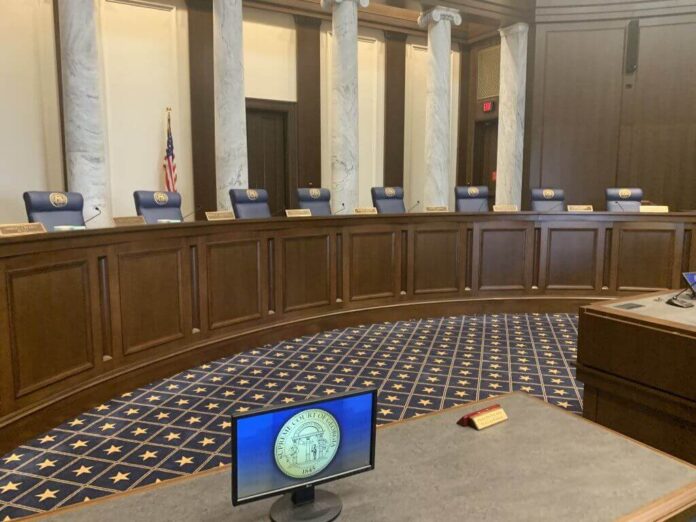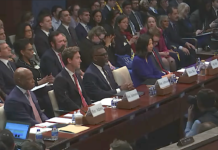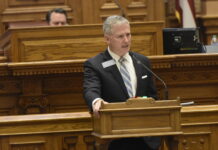
(Georgia Recorder) — A sitting state Supreme Court justice fought off a spirited challenge from a candidate who campaigned on protecting abortion rights in Georgia.
The Associated Press called the race for Justice Andrew Pinson at about 9:30 p.m. Tuesday.
As of 9:30 p.m., Pinson had about 56% of the vote in the head-to-head race against John Barrow, whose efforts to make the race a referendum on abortion rights turned the contest into one of most closely watched on Tuesday’s ballot in Georgia.

Pinson was appointed in 2022 by Republican Gov. Brian Kemp and will now serve a six-year term as an elected justice on the state’s highest court.
The state Supreme Court has already rejected a narrow challenge to Georgia’s six-week abortion ban, but a legal challenge testing the constitutionality of the law under the state Constitution is still pending in Fulton County.
State Supreme Court races are typically low-key affairs that are officially nonpartisan. But Barrow’s unusual campaign style energized both sides of the abortion debate, ruffled feathers in the judiciary and spurred Kemp to publicly rally behind his appointee, setting aside $500,000 and being featured in a pro-Pinson ad.
Barrow racked up endorsements from organizations like Planned Parenthood Southeast Advocates while groups like anti-abortion Frontline Policy Action came out in support of Pinson.
Barrow, who is a former Democratic congressman, sued the Judicial Qualifications Commission in federal court this month after a special committee of the judicial watchdog group sent him a warning letter about his campaign rhetoric, arguing he had crossed a line. The judge dismissed Barrow’s case, saying the candidate’s speech had not been chilled.
Barrow argues he is stating his legal views but not saying how he would rule in a specific case. He argues his statements are protected by the U.S. Constitution.
Three other state Supreme Court justices ran unopposed Tuesday.
A Barrow win would not have altered the court’s makeup by much. All but one of the nine justices on the court were appointed by Republican governors. The one exception, John J. Ellington, was elected to the court in 2018.





